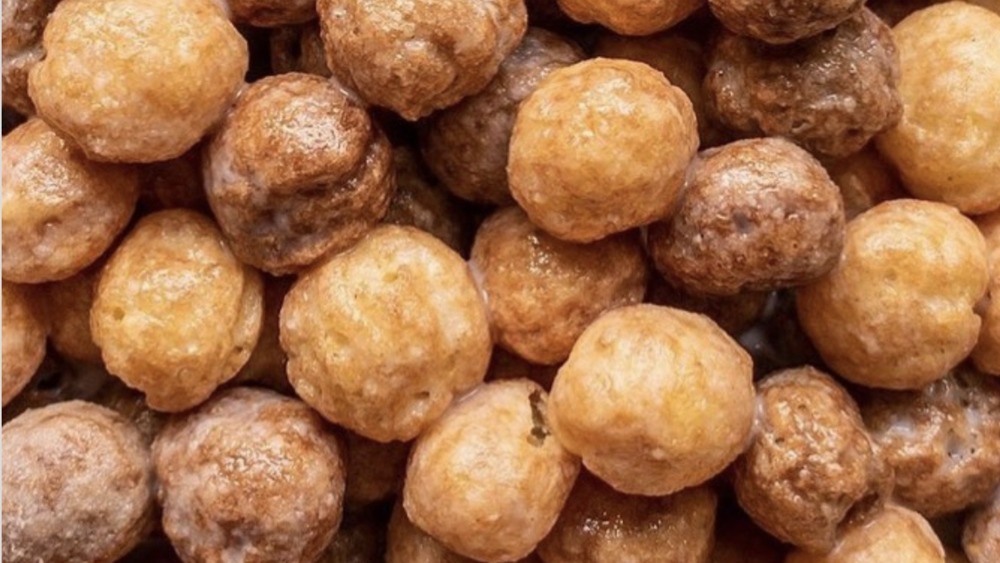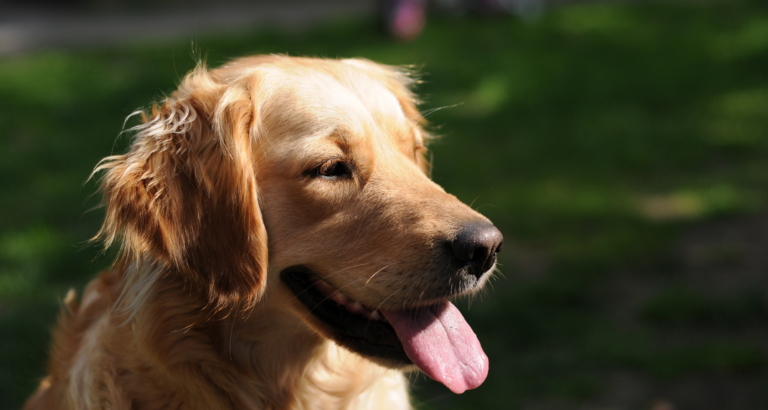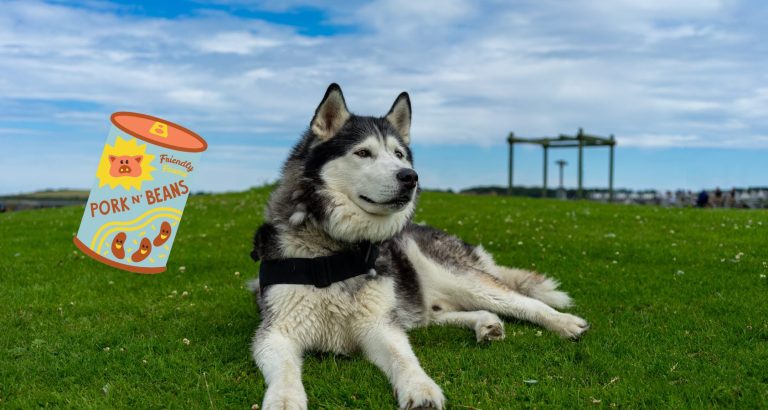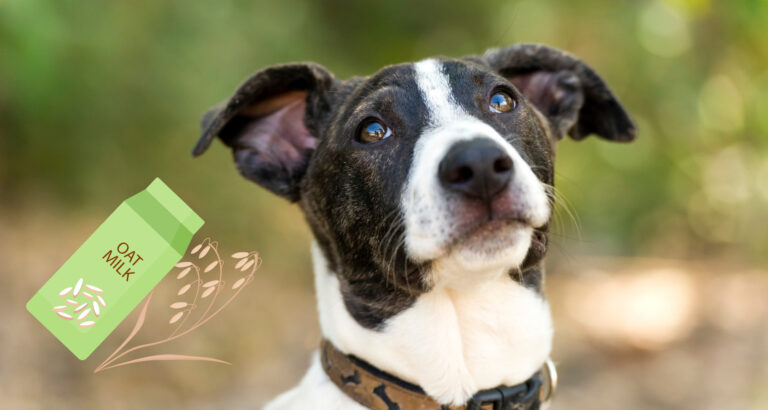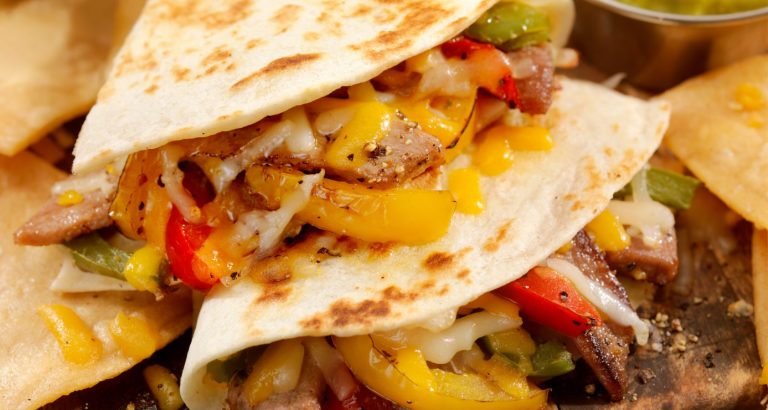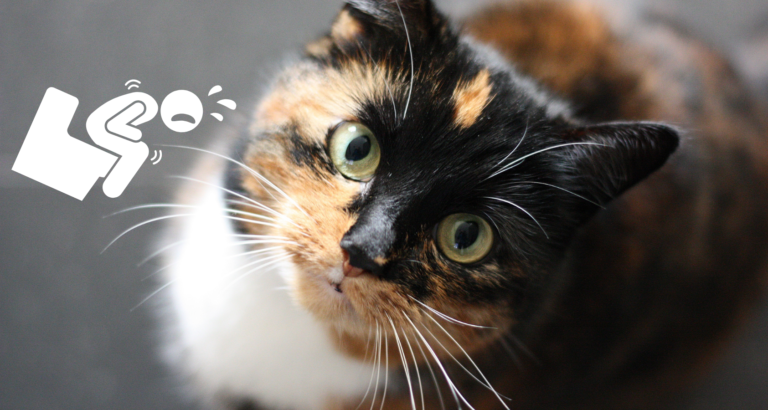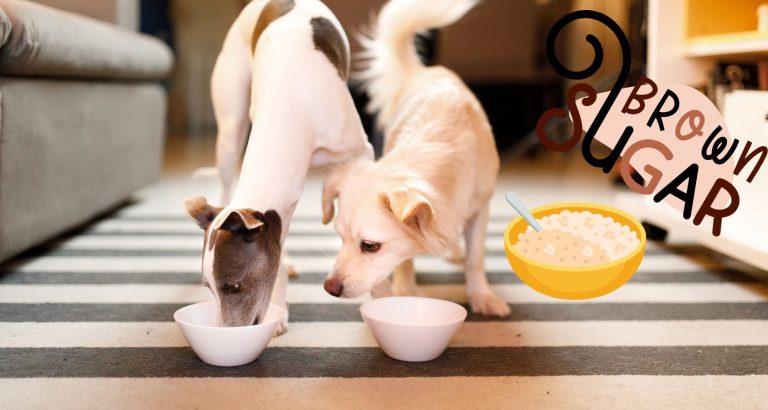Can Dogs Eat Reese’s Puffs?
Last updated on October 6th, 2023 at 06:12 am
Reading Time: 3 minutesThis post may contain affiliate links. If you click and buy we may make a commission, at no additional charge to you.
Can a Dog Eat Reese’s Puffs?
Reese’s Puffs, a truly tasty cereal for those who enjoy eating it. But, a common question we get is if dogs can eat it? Continue reading the article to find out the answer.
Quick Answer
No. Reese’s puffs contain a small amount of chocolate which is toxic for dogs. Your dog can eat a small amount. However, it’s still not recommended as it contains chocolate which is toxic for dogs.
You can’t keep an eye on your pet all the time, so if your dog accidentally eats Reese’s puffs, ensure that you look for signs of toxicity and illness. Read this article till the end to know more about the consequences of Reese’s puffs and dogs.
What Is Reese’s Puffs?
Reese’s Puffs, is a type of breakfast cereal that a lot of kids and parents alike enjoy on their daily mornings. It combines the taste of chocolate and peanut butter. Due to this combination, many people enjoy eating this cereal.
How to Know If Your Dog Ate Reese’s Puffs?
If your dog has eaten Reese’s puffs and you don’t want his condition to get worse, try keeping an eye out for the following symptoms, they may be due to him eating Reese’s.
- Panting
- Tense stomach
- Increased heart rate
- Abdominal swelling
- Trembling and seizures
Note: When you notice any of these symptoms occur, you should consult your vet.
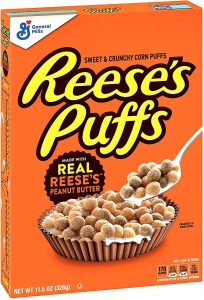
Reese’s Puffs and Dogs Is It Safe?
They’re not recommended for dogs because of the presence of chocolate. Even though it contains a small quantity of chocolate, chocolate is toxic to dogs and makes them sick. And, even the smallest quantity can make a dog react.
So, dogs shouldn’t eat Reese’s Puffs mainly due to the small quantity of Chocolate they contain.
What Ingredients Do Reese’s Puffs Contain?
We went through the Full List of Reese’s Puffs ingredients and created two lists showing both the healthy and toxic ingredients that it contains.
Healthy Ingredients For Dogs:
- Whole Grain Corn
- Peanuts
- Rice Bran
Toxic Ingredients For Dogs:
- Chocolate
- Sugar
- Corn Meal
- Preservatives
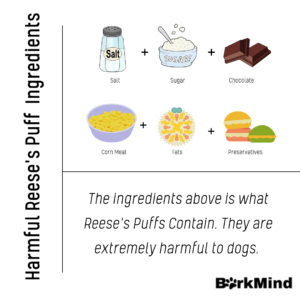
How Much Reese’s Puffs Can Dogs Eat?
There is no need to worry much when your dog ingests a few pieces of Reese’s Puffs. But some dogs are more sensitive than others, and they will have some digestive tract issues. On the other hand, when your dog eats lots of Reese’s puffs, it can make your dog sick.
Note: Reese’s Puffs should be fed as a treat rarely, not a meal in any way.
What Will Happen If My Dog Eats Too Much Reese’s Puffs?
As mentioned earlier, this breakfast cereal contains lots of sugars and fats. You should avoid giving treats full of sugar to your dogs. No doubt, dogs get energy from sugar, but too much sugar is bad for them. They can still get the required energy by consuming carbohydrates. When dogs eat too much Reese’s puffs on a consistent basis, they have a chance of suffering from:
- Obesity
- Cavities
- Diabetes
- Upset stomach
All these issues are due to the presence of high sugar content in Reese’s puffs and not even mentioning the issues chocolate can cause.
Final Words
So, can a dog eat Reese’s puffs? No, he can’t and should not, it contains chocolate, and well, chocolate is toxic to dogs. When dogs ingest it in small quantities, they won’t show any symptoms. But when consumed in large quantities, they can become sick. Therefore, the best approach is to keep this breakfast cereal away from your pets. Other cereals such as Bran Flakes and Lucky Charms might be a more suitable option however, it’s still not recommended to give your dog breakfast cereals as they provide no nutritional value.
About The Author
I'm a content writer and researcher. But bottom line, I loveee animals. I had my first animal which was a guinea pig at age 8. Later had a bunny, dog and a lot, a lot of fish. Writing about what I know about pets will allow me to share my knowledge and love for them with everyone else. Dealing with dogs my entire life, I know a lot.

